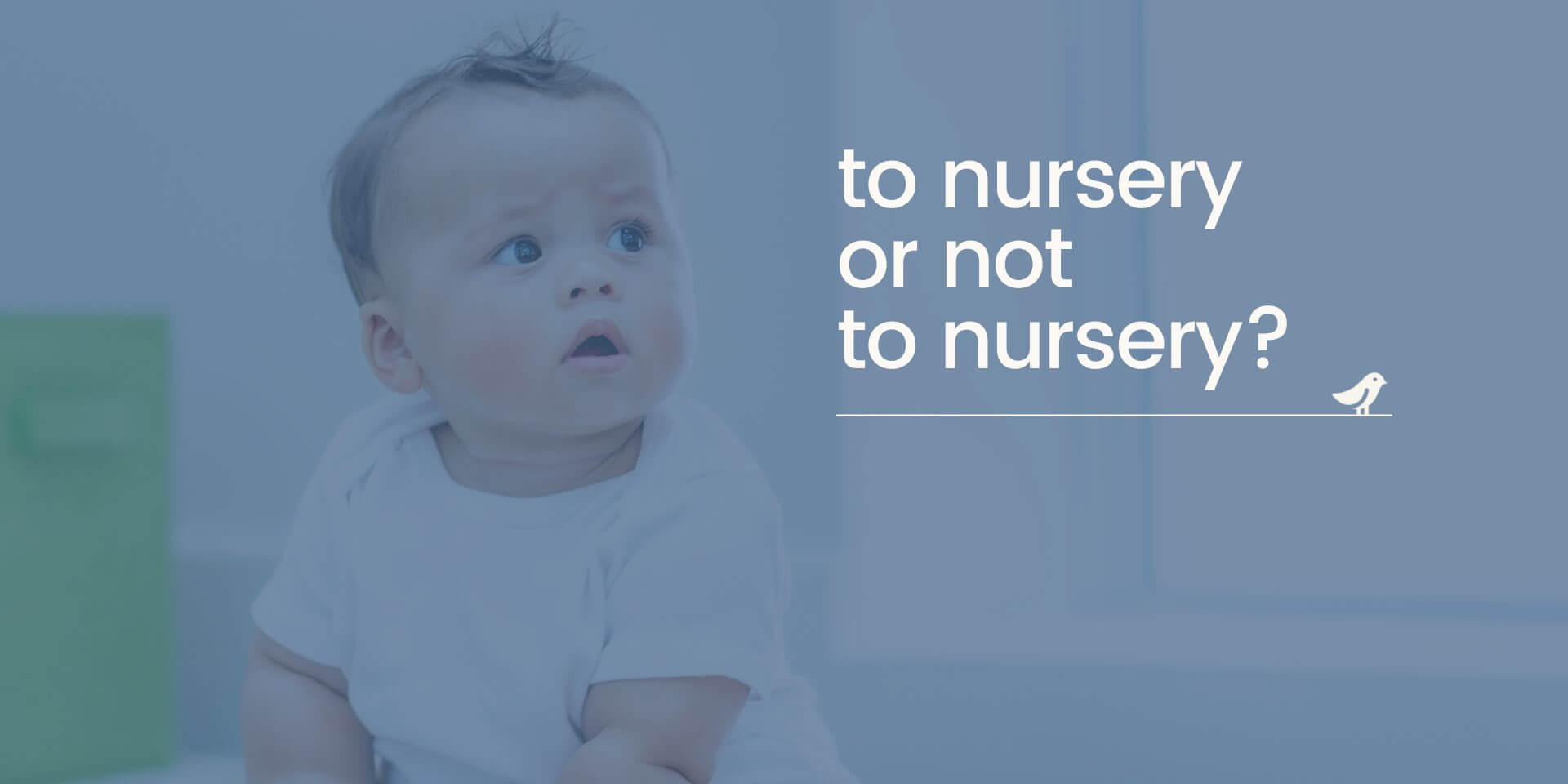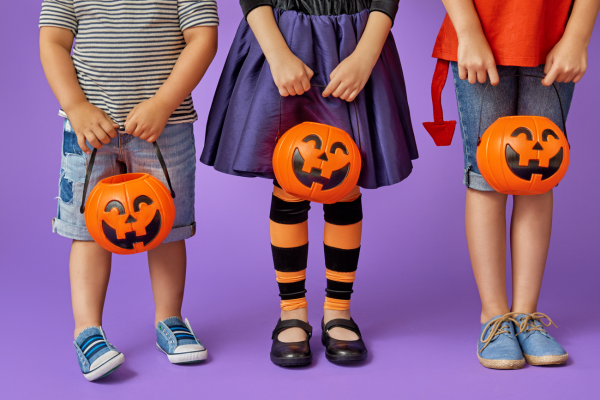Deciding whether or not to send your child to nursery is tough. Parents feel guilty and torn, even if they have no other option to consider.
It’s important to remember that the purpose of sending a child to a quality childcare centre is to help nurture their independence, creativity, and social development. So, in actual fact, the guilt should be removed from the equation altogether – whether you’re thinking of sending your child to nursery because you’re returning to work or because you need some space for your sanity.
 The benefits of nursery
The benefits of nursery
It has been indicated time and time again that children who receive high quality childcare services at any age have better social behaviours and fewer instances of aggression, regardless of the number of hours spent at nursery. A few of the benefits of nursery at a young age include:
Socialisation
Humans are social and emotional beings. The learning process of socialisation begins shortly after birth, and the most crucial socialisation for development occurs in early childhood. This is the period when we acquire language and learn the fundamentals of our culture. This is also the point when a lot of our personality takes shape.
 Life skills
Life skills
Nursery also offers children the opportunity to:
- learn how to keep to a regular schedule of activities
- learn how to share and wait your turn
- advance academically and transit easier to grade school (as indicated by numerous studies)
Immunity
Many parents want to avoid childcare because children get sick so often in the beginning. However, look at it the other way: isn’t it better to strengthen their immune systems? Any child will go to school sooner or later, so it’s only a matter of time.
The drawbacks of nursery
The reality is that there aren’t really any cons to sending your child to nursery – if they are ready for it. The drawbacks come to light only when you send your child before they’re ready, regardless of age.
 So, the begging question: How young is too young?
So, the begging question: How young is too young?
The worst age for your child to start nursery is when they are not socially, emotionally, and physically ready for it yet. Many will recommend a minimum age of at least 12 months, but the truth is that age is irrelevant. It really depends on when the individual child is ready. It can be as early as eight weeks or as late as three years.
How do you know if your child is ready? Ask yourself:
- How independent is my child?
- Has my child ever stayed away from home without me before?
- How curious is my child?
- How well would my child be able to adjust to a routine?
Let’s tackle these one by one:
 1. How do I know if my child is independent?
1. How do I know if my child is independent?
Emotional and physical attachment can be difficult to distinguish in a child because of their inability to communicate clearly, both verbally and emotionally. They can express themselves physically, however.
A few obvious signs of independence are:
- the ability to walk on their own without assistance
- insisting on choosing their clothing and dressing themselves
- the ability to play with others without constant supervision
- understanding the relationship between cause and effect. What happens if they throw a toy on the floor? Is your child trying to talk rather than just crying or reacting?
 2. How do I know if my child is ready to be away from home?
2. How do I know if my child is ready to be away from home?
It’s a good idea to test the waters by letting your child stay with someone else, away from home, for a few hours a week. If they can get used to this, it’s likely they can get used to staying at a nursery with other carers.
It’s not a great idea to place your child into nursery before understanding how they’re going to react. Most children cry at the beginning of the nursery experience so it would be very hard to gauge how it’s really affecting them and how they’re going to adjust if they’ve never been in the situation before. Spending time away from home with a familiar face can help make an early imprint on a child, which can help them feel more secure about the process of separation.
 3. How do I know if my child is curious?
3. How do I know if my child is curious?
You’ll know if your child is curious and seeking to grasp information when they:
- start to take an interest in shapes and colours
- begin choosing books for you to read to them
- start to play alone
These are all signs that your child is ready to learn! Do not worry, it has nothing to do with intelligence – some start as early as 12 months old, while others don’t express this interest until they’re toddlers.
4. How do I know if my child can adjust to a routine?
The last major sign that your child is ready for nursery is if they can adjust to a routine. For the parents who have already implemented routine, this is easy. For those who haven’t, it’s an adjustment.
The younger children who sleep when they want and who eat on demand will still have a few anchoring points, such as a soother or their crib, and of course their parents. They’re liable to think that the loss of any one of those anchors will be a permanent one, which can be extremely stressful if nursery will be the first time they’ve had to get ready for a routine.
If your child isn’t in a routine, something as simple as eating or having a bath at the same time each day can go a long way towards fostering a sense of routine for a child.
 What happens if you send your child to nursery too early?
What happens if you send your child to nursery too early?
It’s been discovered a thousand times over that between birth and 18 months, stable care from a single caregiver is of paramount importance to a child’s development. The key here is the single part, as very young children blossom and develop on this individual attention from someone who is totally in tune and sensitive to their needs. This is what allows a child to feel safe and protected from a very young age.
In somewhat extreme cases, if the parental sensitivity is low, the nursery services are of poor quality, or there have been long periods of non-parental care, the result may be an impaired or insecure parental-attachment bond.
What are the chances of this? Pretty low. In fact, it’s unlikely you would be reading this article if this were the case for your child.
From the stress perspective, studies have shown that the cortisol levels of toddlers and babies under the age of three years rises significantly in the mid-afternoon at childcare centres, as compared to when the same children are at home.
To put it simply: Being in loud, highly stimulating environments for a stretch of time is stressful for adults, let alone children. For children under the age of three, sticking to half days in nursery or breaking up long hours with a babysitter or nanny at home may be a better option.
Transitioning is key. It’s important to integrate nursery slowly so that your child has time to get used to it. If your child can be left without supervision for gradual extended periods of time without severe emotional distress, it’s likely they’ll be able to thrive at nursery without too much anxiety.
 How do you know how to choose the right nursery?
How do you know how to choose the right nursery?
A good nursery will have a low carer to child ratio. This allows for a more consistent set of caregivers who are more likely to gain sensitivity and respond quicker to the child’s individual needs. The carers should value all children as individuals to help foster your child’s sense of self. Is the staff highly trained in early education and child development? These are the ones who will engage your child in both play and skill building.
Check that the nursery culture is one where they are taking the education of the children seriously. This is not to say that it needs to be severe, but rather that there is a learning philosophy in place. Granted, young children learn through play – but the aims of the centre should be to help the children develop their mental, emotional, and social skills, as well as to promote team spirit through play.
The Facebook group Childcare Centres Malta. The Good and the Bad is a relatively in-depth resource for those who are looking for first-hand encounters when searching for a childcare centre in Malta.



